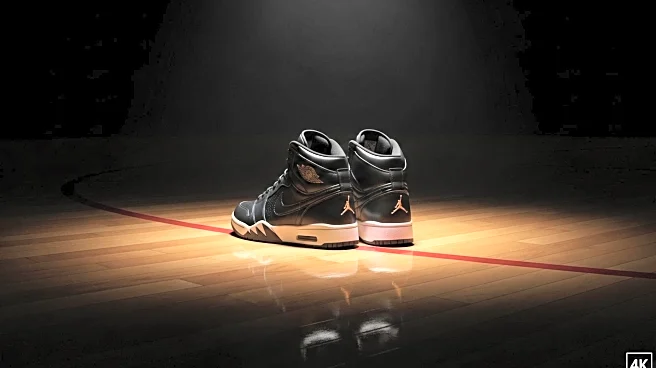What's Happening?
LeBron James, entering his 23rd NBA season, is facing questions about retirement as he deals with sciatica. During the Lakers' media day, James hinted that the end of his career is near, although he remains focused on playing the game he loves. His teammates, including Luka Dončić and Austin Reaves, are supportive of James taking his time to decide on his future. James is currently limited to light shooting during training camp and will be re-evaluated in three to four weeks, missing the start of the 2025-26 season.
Why It's Important?
James's potential retirement is a significant moment for the NBA, as he is one of the league's most iconic players. His absence due to injury also poses challenges for the Lakers, who rely on his scoring and leadership. The team will need to adjust its strategy and rely on other players like Luka Dončić to maintain competitiveness in the Western Conference. This situation highlights the challenges of managing veteran players' health and career transitions in the NBA.
What's Next?
James's condition will be re-evaluated in three to four weeks, potentially allowing him to return by late October or early November. The Lakers will need to navigate their early season games without him, including a nationally televised game against the Minnesota Timberwolves. The team may opt to start other players in James's place, such as Jarred Vanderbilt or Jake LaRavia, or use a smaller lineup with guards Marcus Smart or Dalton Knecht. The Lakers will aim to maintain a competitive edge in the Western Conference while managing James's recovery.
Beyond the Headlines
James's injury and retirement questions raise broader issues about the management of veteran players in the NBA. As James approaches the end of his career, the Lakers must balance his health with the team's competitive goals. This situation also underscores the importance of depth in the roster, as other players will need to step up in James's absence. The Lakers' handling of this situation could set a precedent for how teams manage aging superstars and their career transitions.










